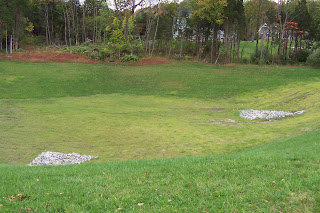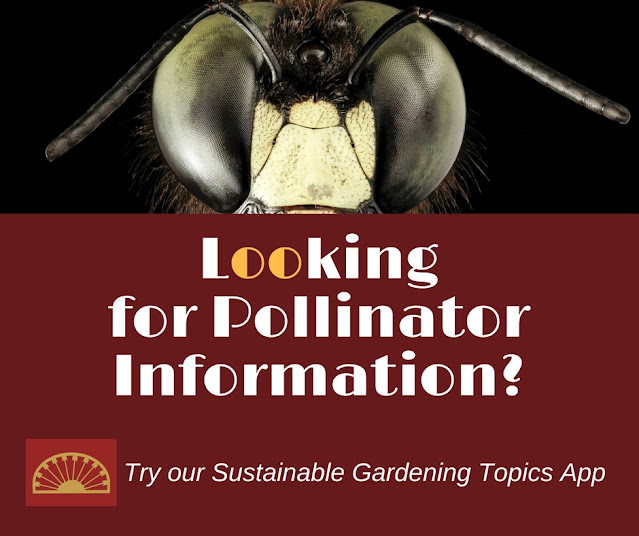Detention Basin Planting Day

 Yesterday, 13 volunteers planted 325 trees and shrubs, as well as native grasses, in 6 stormwater detention basins as part of a township-wide wetland habitat restoration program. As chair of the Andover Township Environmental Commission, this is a project very close to my heart (see http://loisdevries.blogspot.com/2007/09/detention-basins-good-bad-and-ugly.html). Directed by US Fish and Wildlife Service biologist Brian Marsh, the project is a joint effort, with the federal Partners in Wildlife program providing the plants and technical assistance and the township providing the labor. Later on, the Township will plant wildflowers and perennials, and install nest boxes and interpretive signs.
Yesterday, 13 volunteers planted 325 trees and shrubs, as well as native grasses, in 6 stormwater detention basins as part of a township-wide wetland habitat restoration program. As chair of the Andover Township Environmental Commission, this is a project very close to my heart (see http://loisdevries.blogspot.com/2007/09/detention-basins-good-bad-and-ugly.html). Directed by US Fish and Wildlife Service biologist Brian Marsh, the project is a joint effort, with the federal Partners in Wildlife program providing the plants and technical assistance and the township providing the labor. Later on, the Township will plant wildflowers and perennials, and install nest boxes and interpretive signs.The Problem
The purpose of the various types of stormwater basins (detention, retention, and infiltration) is to slow down runoff in areas where development has altered the natural drainage of the land. They are a common sight in residential, industrial, and commercial developments throughout New Jersey. Some older basins are constructed primarily of cobble-sized rip-rap, which is difficult to maintain and becomes overgrown with invasive trees. Others are planted with cold-season grasses, which impairs biodiversity, attracts geese, and requires constant maintenance. The maintenance itself can create problems by causing ruts in the wet bottom of the basin and contaminating the runoff.
The Solution
NJ Department of Environmental Protection’s preferred Best Management Practice for handling stormwater over large areas is the so-called Marsh Meadow Detention Basin, designed to mimic a natural wetland. They are low/no maintenance, eliminate the need for fertilizer and pesticide treatments, act as a visual and physical buffer, control erosion, act as biolfilters, and restore wildlife habitat.
Looking Forward
Andover is encouraging developers to include stormwater gardens at the planning stages of new housing developments as a means of improving water quality, restoring habitat destroyed by construction, and reducing taxes currently used to fund maintenance of the basins.
Thanks to everyone who participated: Brian Marsh, Diane and Fred Gillespie, Sue and Bill Howell, Bob Green, Linda Hubbard, Harvey Hummel, Kathryn Richardson, Peter Spinney, Township Engineer Joe Golden, Mayor Gail Phoebus, and Deputy Mayor Bob Smith.

